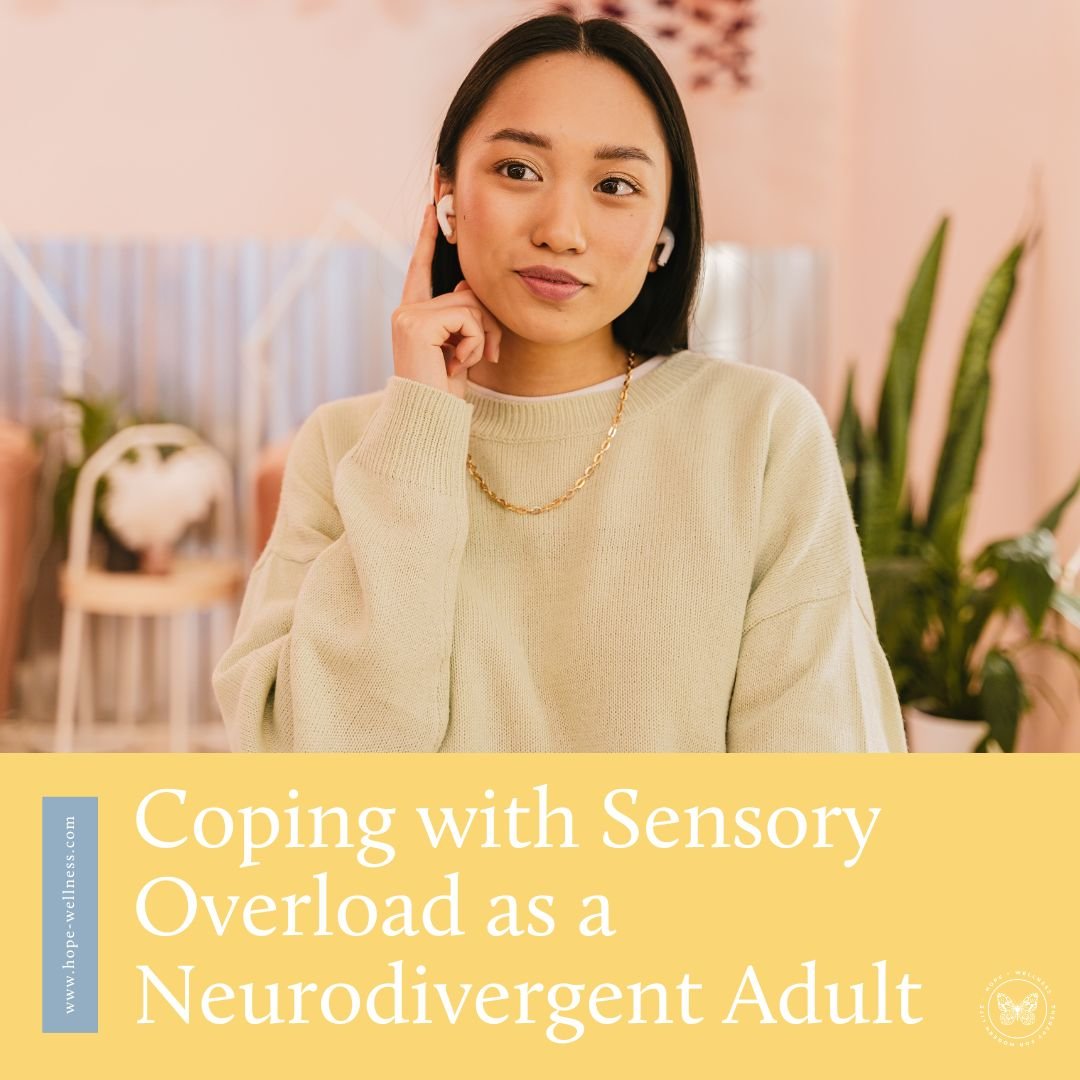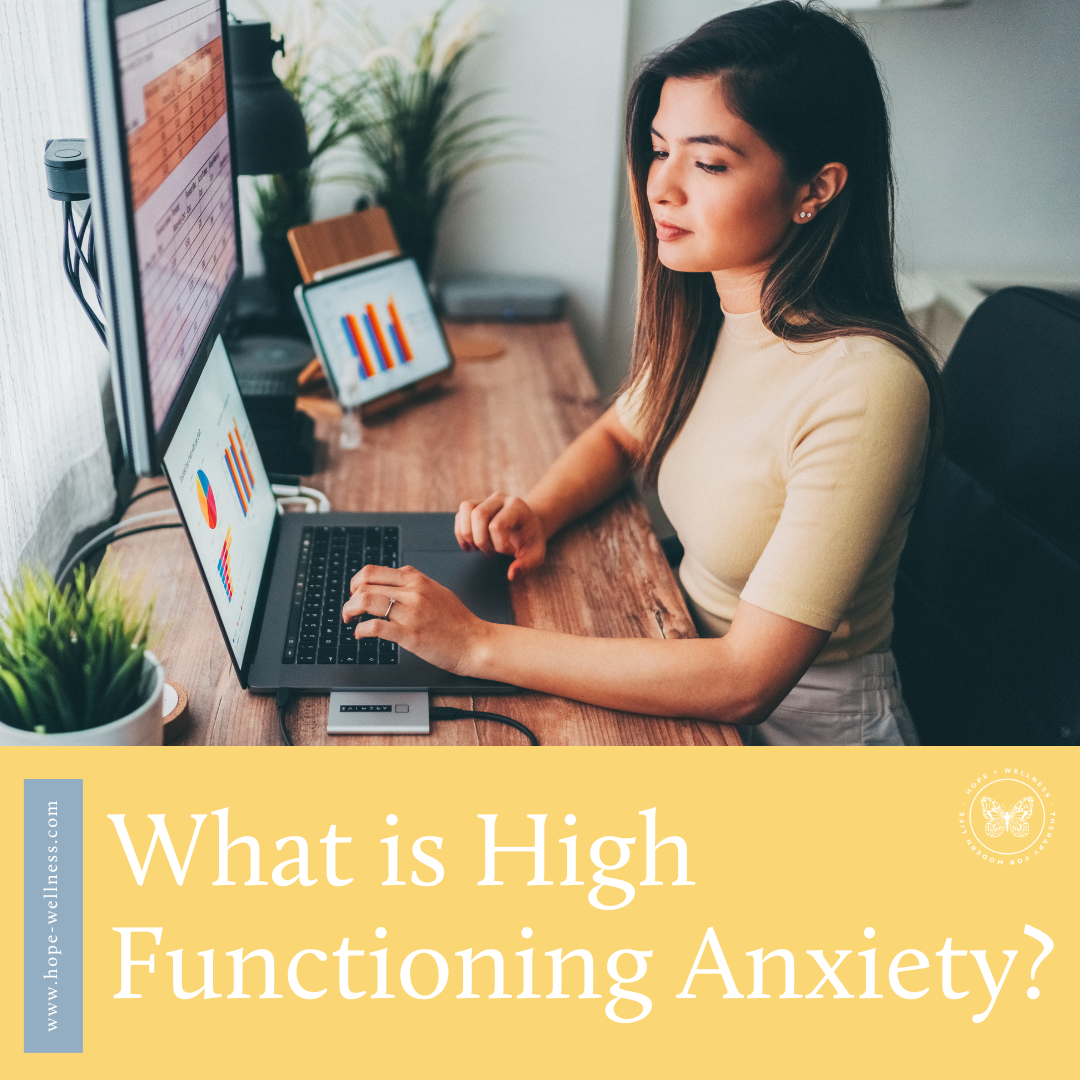What is High Functioning Anxiety?
Have you ever heard of high functioning anxiety?
While high functioning anxiety isn’t an official diagnosis, this type of anxiety can be draining and isolating. People who struggle with high functioning anxiety often find themselves motivated by their anxiety to achieve their goals and to appear perfect. Often, they struggle with extreme inner turmoil while on the outside they appear successful.
What does “high functioning” mean?
In mental health, providers look for clues about how well a person is functioning to assess how deeply they’re impacted by their disorder. Functioning basically means that a person is able to go about their day to day life without significant impairment by their mental health.
High functioning, then, means that a person is able to function at a higher level than most people. They may be successful at work, active in their communities, outgoing, and organized.
When someone is dealing with high functioning anxiety, they often appear to be perfect on the surface, even though underneath they are dealing with overthinking, fear of judgment or disappointing others, and racing thoughts. They may struggle with sleep or have a difficult time relaxing. Some cope with their fear of inadequacy by feeling like they can’t say no or falling into people pleasing, or even with substance abuse as a way to lower their distress. They may lose time to overthinking, rumination, and procrastination.
People with high functioning anxiety are often praised for the positive effects of their anxiety - like being motivated to achieve, being punctual and organized, and being good problem solvers. They may feel that the trade-off for these positive traits is dealing with the negative aspects of anxiety, even when they’re overwhelming.
How is high functioning anxiety different from regular anxiety?
Anxiety disorders are extremely common. Anxiety often leads people to avoid the situations that increase their anxiety. For example, people with social anxiety may be tempted to avoid social situations to avoid the unpleasant feelings that they bring.
High functioning anxiety is a little different from other anxiety disorders in that it is often a motivating force. In addition, they often try to hide their symptoms to protect the illusion that they have everything under control. Anxiety can make you feel out of control of your own mind, and some people respond to this lack of control by trying to control everything else they can.
Folks who deal with high functioning anxiety tend to deal with persistent self-criticism, high levels of stress, extreme self-doubt, and sensitivity to criticism or judgment from others. It’s common for people with this kind of anxiety to feel like they’re losing control or that their life is about to spiral out if they can’t hold it together.
Feeling like you have to be perfect at all times can create enormous pressure. When you feel like you’re constantly on the verge of losing control, one tiny misstep can be all it takes to send you spiraling. It’s hard to enjoy life when you’re always waiting for something to go wrong.
How do you treat high functioning anxiety?
Anxiety is distressing because it takes you out of the present moment and overwhelms you. Finding ways to return to the present moment before you get carried away with your anxious thoughts can be enormously helpful when dealing with high functioning anxiety. Mindfulness practices and grounding exercises can help you practice interrupting your anxious thoughts and coming back to the present moment.
It may also be helpful to remember that anxiety can have some positive side effects. People who are anxious are often empathetic and compassionate. The problem is when anxiety gets in the way of actually enjoying your life. If your anxiety has gotten to the point where you feel you can’t enjoy your day to day, it may be time to seek professional help. Anxiety is upsetting, but it is treatable.
If you’re struggling with high functioning anxiety, working with a therapist who is trained in Cognitive Behavioral Therapy (CBT) can help you learn how to reframe your thoughts and respond in new ways when you’re distressed. CBT is particularly helpful with anxiety because it helps you identify faulty patterns of thinking that may be second nature to you after a lifetime of dealing with anxiety. Learning how to recognize the patterns that you tend to slip into when anxious can help you spot them more easily when they come up in the future.











Health anxiety is distressing while you're waiting for a diagnosis or other results. Here's how you can cope.